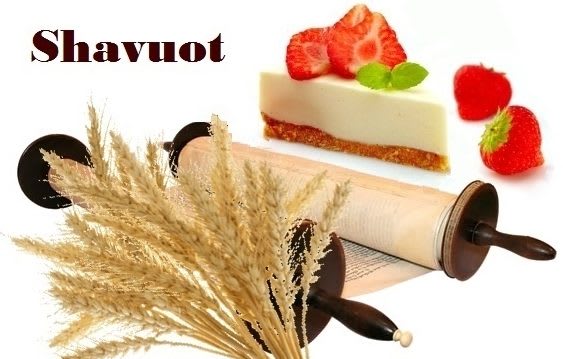1. They call it the Magen Avraham’s kasha. The most famous question regarding this least famous of Jewish holidays: Shavuot is 50 days after Pesach. Go back to the original Revelation and work out the math (we were redeemed on a Thursday and received the Torah on a Shabbos); it turns out that we received the Torah on day 51 after Pesach. So why celebrate Shavuot (“z’man matan torateinu”) on the day before we actually received it? Many answers have been suggested.
A simple and poignant approach distinguishes between the day we received the Torah (kabbalat hatorah) and the day God gave it to us (matan torateinu). On Shavuot, we celebrate the day that God gifted the Torah to His special nation. A meaningful act of giving requires a willing appreciative recipient who understands the gift’s value. A Palm 750 is fairly useless in the hands of a monkey (or a techno-phobic human). Moshe, says the Talmud, added a day to the run up period of receiving the Torah. Perhaps this was a day of contemplation, a space to consider the greatest gift ever received – a veritable window into Hashem’s “mind”. Where would we be without Torah? I feel bad for the Jews who have yet to appreciate its beauty. Theirs is a dry Judaism. Ta’amu u’reu ki tov!. – Taste it and see how good it really is. Then I must turn inward – do I really appreciate it – so why don’t I learn it as much as I can?
2. Why isn’t it famous? Because there is no special discernible mitzvah on Shavuos (of course there are special sacrifices, but Rosh Chodesh also has them and it is not a moed;) It almost seems that Shavuos is wholly unremarkable. Consider that:
- Yes, we learn Torah on Shavuot, but we …. (theoretically) should learn Torah everyday.
- Yes, the Torah is new on Shavuot and so it should be everyday.
- Yes, we formally received the Torah on Shavuos – but we must strive to re-receive everyday.
- (Yes, we eat cheesecake on Shavuot and we should do so … wishful thinking.)
Perhaps Shavuos simply highlights the extraordinary ordinary that is the hallmark of Jewish life. A traditional Jewish lifestyle might run approximately as follows: One wakes up, says modeh ani, prays, learns Torah, goes to work, helps out, spends time with family and learns some more. It is all holy. Tosafot teaches that a Jew never lapses from his Torah consciousness. Shavuot celebrates the exalted mundane life of the striving Jew.
3. Shavuos marks our personal relationship to Torah. In his wild quest to locate who stole the Torah, Satan turns to Moshe (Shabbos 89a) and asks where it is. Moshe responds to the Satan: Who am I that God would give me the Torah. Ultimately, Satan accuses Moshe of lying. Moshe responds: True, I have the Torah – but it is not mine, for how can I possibly own God’s Torah? Hashem corrects Moshe: precisely because you diminish yourself, you now become its proprietor (toras Moshe avdi – Malachi 3). In effect, Hashem is saying that to acquire Torah, humility is the requisite trait. The great paradox of owning Torah now becomes: the less one claims Torah, the more he has of it.
4. On staying up all night Shavuot, I’ve heard it all:
- Why stay up all night – it kills any learning for the next day (or 2 or 3 or 7)”
- “It’s not efficient (try learning Yevamos at 3:30am or 3:30 pm for that matter)”,
- “It’s not a halacha, (obligation), it’s a minhag”.
- I don’t like cheesecake so late at night
- Because the Jews fell asleep a few thousand years ago (at matan torah) I have to suffer
So why do we do it? The Jewish people understand that love can’t be quantified in terms of efficiency, pragmatics and obligation. Au contraire, the loving act, at times might require grand impracticality and incredible inefficiency. Remember those late night phone calls with our chosson/kallah to be? Conversations of utter fatigue that at times might rightly have been termed out of body experiences. Yet, they create a bond. Sacrifice creates love. On Shavuos night we talk to our kallah – even if we may not remember exactly what we said. Minimally, we are expressing in deed and in word: Hashem – we love you and your Torah.
Rabbi Asher Brander is the Rabbi of the Westwood Kehilla, Founder/Dean of LINK (Los Angeles Intercommunity Kollel) and is a Rebbe at Yeshiva University High Schools of Los Angeles
The words of this author reflect his/her own opinions and do not necessarily represent the official position of the Orthodox Union.
